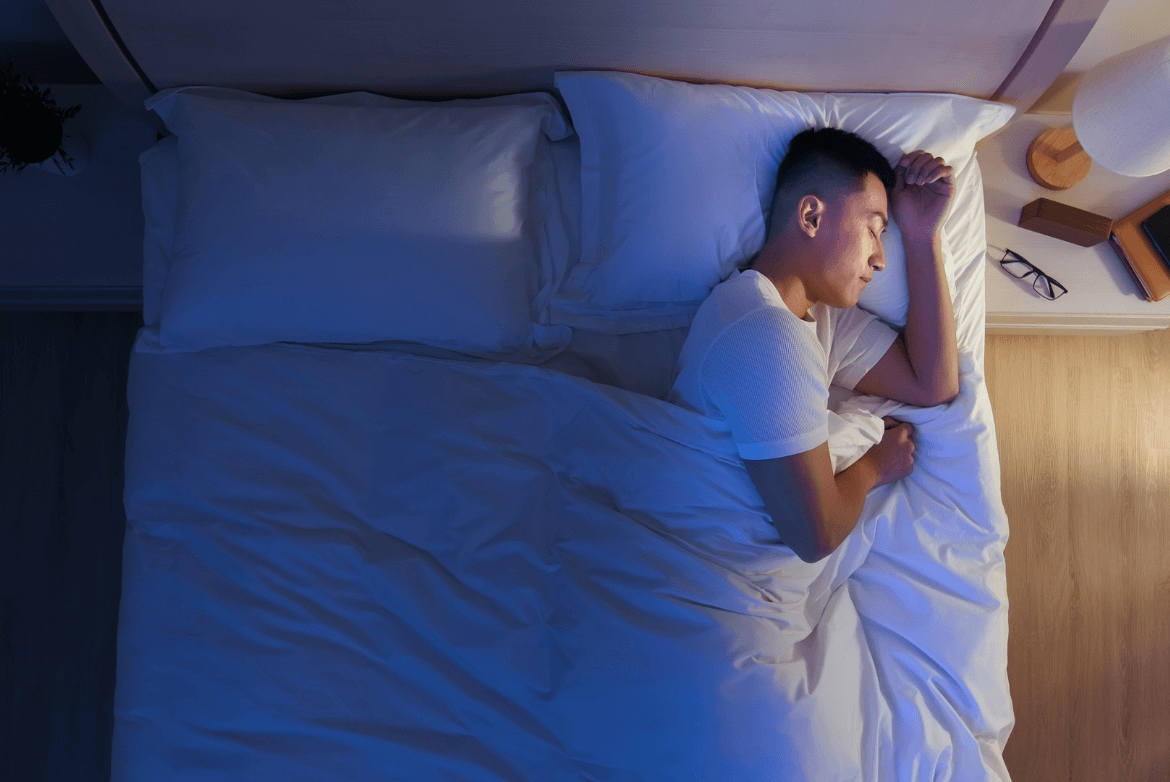It is normal to wake up once or twice during the night. However, if you wake up more than a few times during the night or can’t sleep, it may be the time to try something else. It makes sense to get up at some time. However, you still need to sleep and do it as quickly as possible. Here are some tips to help you fall back asleep after waking up.

Table of Contents
It’s Too Hot
While some people prefer to sleep in a warm and comforting environment, it’s better to sleep in a cold room between 60 and 67 degrees Fahrenheit. Sleeping in a heated room can cause things like night sweats, which can disrupt your sleep quality.
Anxiety Problems
Stress or anxiety might keep you awake at night. Anxiety over going to bed can be triggered by focusing too much throughout the day, stress, poor sleep cycles, or quick thought processes.
You won’t be able to relax
Some nights, you toss and turn for hours, unable to find the ideal posture to sleep. If you can’t get comfortable, stand up for 10 to 15 minutes to allow your body to reset.
You experience nightmares
A nightmare may cause you to be concerned about going back to sleep, disrupting your sleep routine. To help you overcome the nightmare dreams, try to figure out what they represent in order to pinpoint the source of the problem.

Blue Light Keeps You Awake
It can be tempting to check social media before bed, but did you know that blue light from your screen might interfere with your sleep?
You Underwent a Significant Life Transition
A significant life change, beginning a new career, or relocating to a new place, might keep you up at night. To prepare for a peaceful night’s sleep, try relaxing before bed and following a nighttime ritual.
Consult a sleep specialist
Making lifestyle adjustments isn’t always enough to enhance the quality of your sleep and help you get adequate rest. According to the American Academy of Sleep Medicine, 30% of individuals suffer from insomnia symptoms. Consult a doctor if you are experiencing difficulty falling asleep, waking up at night, or sleeping.

Waking up
Try to sleep for 20 minutes before getting up. Try not to look at the time as you lie there. Set your digital clock to face the wall and switch off your phone to avoid continuously checking the time.
According to Perlis, a good habit is to set a timer for 30, 60, 90, or 120 minutes in advance. But you don’t have to be obsessed with time. It might be contradictory and increase your anxiety about being awake. There are a few exceptions to the suggestion to get out of bed. If you are taking sleepy medicine or have balance issues, it is advisable to stay in bed for your safety.
Good sleep hygiene comprises activities that signal the body that it is time to sleep, such as going to bed at the same time every night, turning off electronics, and keeping your room dark. It also includes abstaining from caffeine or other stimulants for many hours before night.
Read More:
